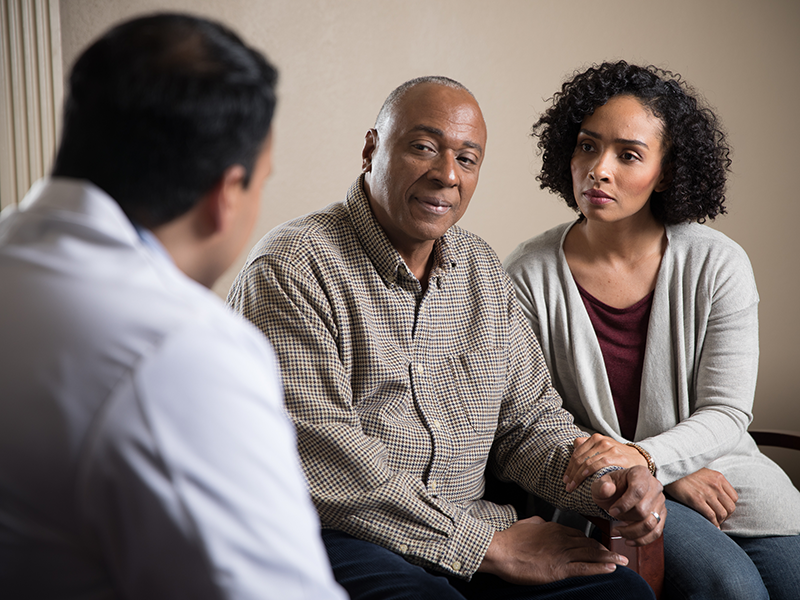October 31, 2018
Patience During End-Of-Life Discussions

In a recent example, the patient was suffering. He had been recently diagnosed with metastatic cancer which was diffuse. He had received some treatment, but it was not working. He then developed life-threatening pneumonia. His oxygenation was tenuous, but we all knew that if he got intubated, he would never come off the ventilator and would likely live his last days on mechanical ventilation in an induced coma. When it looked like we could not head off intubation with conservative treatment measures, my colleague and I sat down with the family to have a frank discussion about the patient’s current disease and overall prognosis. We also discussed his overall goals of care. While not wanting to seem harsh, we felt that we owed the family frankness: their beloved brother and uncle was dying, and we needed to know what he would want at the end of his life.
It was extremely disappointing
Much to our dismay, the family asked that we don’t speak with them again. They said, in so many words, “We don’t want to talk to anyone speaking of ‘doom and gloom.’ If you want to say anything to us, tell it to the oncologist, who will then speak to us.” It was extremely disappointing. We didn’t say anything different to the oncologist. Our message was the same: the patient was dying, and he really should not suffer further on the ventilator as he will likely not come off the machine. After our discussion with the oncologist, we still felt like our inability to connect with the family meant that we failed, that we didn’t do everything we were supposed to do. As healthcare providers, we have to recognize that this will happen from time to time. We will not connect with every single family, every single time. It is hard to accept, no doubt, but it is the reality. We also have to remember that people take news like this differently. It is sometimes difficult to see the world from the family’s point of view. We, as providers, get it that a patient has rapidly deteriorated and will likely die. It happens all the time, and it is inherent to us, scientists, who understand pathophysiology. Our patients’ families, however, likely do not grasp that same understanding. When it is a loved one, it can be difficult to understand that someone can be fine one moment and on death’s door the next.
Firsthand experience with the loss of a family member
I know firsthand such difficulty because I was one such family member. Almost ten years ago, my eldest daughter passed away from septic shock. She was severely immunosuppressed from chemotherapy, and when the E. coli went into her bloodstream, her cancer-battered body was no match for the inflammatory response. She first got sick on Saturday morning at 6 AM, and by 12 PM the next morning, she was dead. I knew the pathophysiology and etiology of her illness. That knowledge did not make it any easier. Her death hit me like a ton of bricks, and to this day, the very moment I realized that she would die was the absolute worst moment of my entire life. And so, when situations like these come about, we should be patient. If families ask for some space, we should give it to them. As hard as it may be for us, it may be part of the healing and coping process for them. Yes, we hate to see our patient’s suffering unnecessarily from futile healthcare but it may be a mercy to them that will help them long after their loved one dies. Sometimes families just need time to process truly traumatizing new realities. In our patient’s case, one of our other colleagues was able to speak with the family and discuss goals of care. After a few days, the family withdrew aggressive support, and the patient died peacefully. While it did hurt that they didn’t want us to speak to them about the patient’s care, in the end, that didn’t matter. What did was that both the patient and his family were at peace. And that, ultimately, is what we all wanted.
